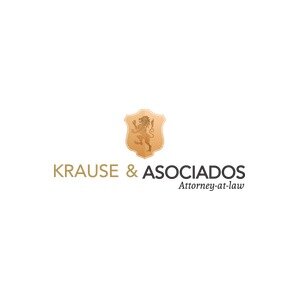Best Child Abuse Lawyers in Puerto Plata
Share your needs with us, get contacted by law firms.
Free. Takes 2 min.
Free Guide to Hiring a Family Lawyer
List of the best lawyers in Puerto Plata, Dominican Republic
About Child Abuse Law in Puerto Plata, Dominican Republic
Child abuse is a significant concern in Puerto Plata, Dominican Republic, just as it is globally. The Dominican Republic has been working towards strengthening its laws and systems to better protect children from harm. Child abuse can include physical abuse, sexual abuse, emotional abuse, and neglect or exploitation. The legal framework aims to ensure the protection of children’s rights and provide them with a safe and nurturing environment.
Why You May Need a Lawyer
There are several situations where individuals may find themselves requiring legal assistance concerning child abuse. These include cases where a child has been harmed or is at risk, situations involving custody disputes with allegations of abuse, or when facing accusations of child abuse. A lawyer can provide guidance through the legal process, assist with the necessary documentation, represent clients in court, and help ensure that the child’s rights are safeguarded.
Local Laws Overview
The Dominican Republic's legal system encompasses several laws and international agreements aimed at protecting children. The key legal instruments include the Código para el Sistema de Protección y los Derechos Fundamentales de Niños, Niñas y Adolescentes (Code for the System of Protection and Fundamental Rights of Children and Adolescents), which outlines the rights and protections afforded to children. Additionally, the Dominican Republic is a signatory to international treaties such as the Convention on the Rights of the Child, underscoring its commitment to upholding children's rights. In Puerto Plata, as throughout the country, these laws aim to prevent and address instances of child abuse effectively.
Frequently Asked Questions
What constitutes child abuse in Puerto Plata?
Child abuse can be physical, emotional, sexual, or through neglect. It involves any action or inaction that harms or risks harming a child.
How can I report suspected child abuse?
Suspected child abuse should be reported to the local authorities, including the police or the Fiscalía de Niños, Niñas y Adolescentes (Public Prosecutor's Office for Children and Adolescents).
What are the potential consequences for someone convicted of child abuse?
Penalties can vary but may include imprisonment, fines, and loss of parental rights or custody, depending on the severity of the abuse.
Can a child testify in court in child abuse cases?
Yes, but the process typically involves considerations to make the child comfortable, such as testifying via video link to avoid direct confrontation with the accused.
What support is available for child abuse victims in Puerto Plata?
There are various support services, including counseling and rehabilitation programs, often administered by government agencies and NGOs.
Does the law protect whistleblowers of child abuse?
Yes, there are legal protections in place intended to protect individuals who report child abuse cases from retaliation.
What should I do if accused of child abuse falsely?
It is essential to seek legal counsel immediately to navigate the legal proceedings and protect your rights effectively.
How does domestic violence relate to child abuse under local laws?
Exposure to domestic violence is considered a form of emotional abuse and can prompt legal intervention to protect the child.
Do educational institutions have a role in reporting child abuse?
Yes, teachers and school officials are often required by law to report any signs of child abuse to the authorities.
What is the legal age of consent and how does it relate to child protection laws?
The age of consent in the Dominican Republic is 18, and sexual activity with someone below this age can lead to charges of statutory rape or sexual abuse.
Additional Resources
There are several organizations and governmental bodies focused on child protection in Puerto Plata and broader Dominican Republic. The Sistema Nacional de Protección de Niños, Niñas y Adolescentes (National System of Child and Adolescent Protection) and local offices of UNICEF are valuable resources. Additionally, local non-governmental organizations (NGOs) focused on children’s rights can offer guidance and support.
Next Steps
If you need legal assistance regarding child abuse, start by consulting a qualified lawyer who specializes in family or child protection law. They can provide you with the necessary legal advice and representation. It's also crucial to document any evidence of abuse and maintain clear records of all interactions with relevant authorities. Seeking support from local children's advocacy groups can also be beneficial in navigating the available resources and understanding your rights and obligations.
Lawzana helps you find the best lawyers and law firms in Puerto Plata through a curated and pre-screened list of qualified legal professionals. Our platform offers rankings and detailed profiles of attorneys and law firms, allowing you to compare based on practice areas, including Child Abuse, experience, and client feedback.
Each profile includes a description of the firm's areas of practice, client reviews, team members and partners, year of establishment, spoken languages, office locations, contact information, social media presence, and any published articles or resources. Most firms on our platform speak English and are experienced in both local and international legal matters.
Get a quote from top-rated law firms in Puerto Plata, Dominican Republic — quickly, securely, and without unnecessary hassle.
Disclaimer:
The information provided on this page is for general informational purposes only and does not constitute legal advice. While we strive to ensure the accuracy and relevance of the content, legal information may change over time, and interpretations of the law can vary. You should always consult with a qualified legal professional for advice specific to your situation.
We disclaim all liability for actions taken or not taken based on the content of this page. If you believe any information is incorrect or outdated, please contact us, and we will review and update it where appropriate.









